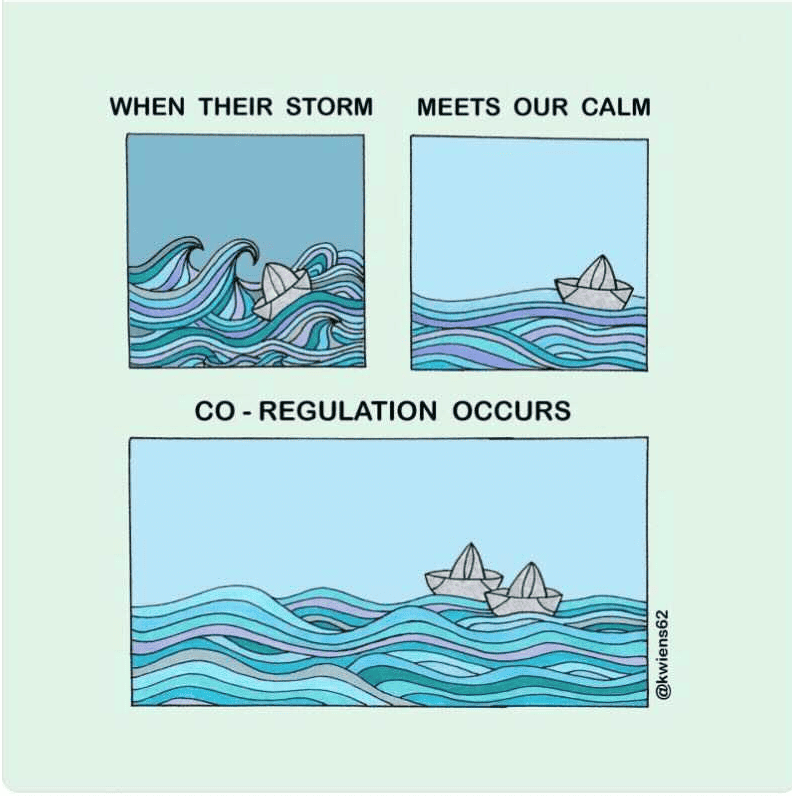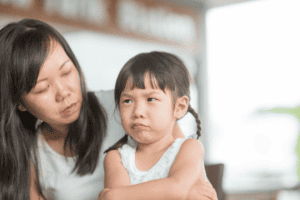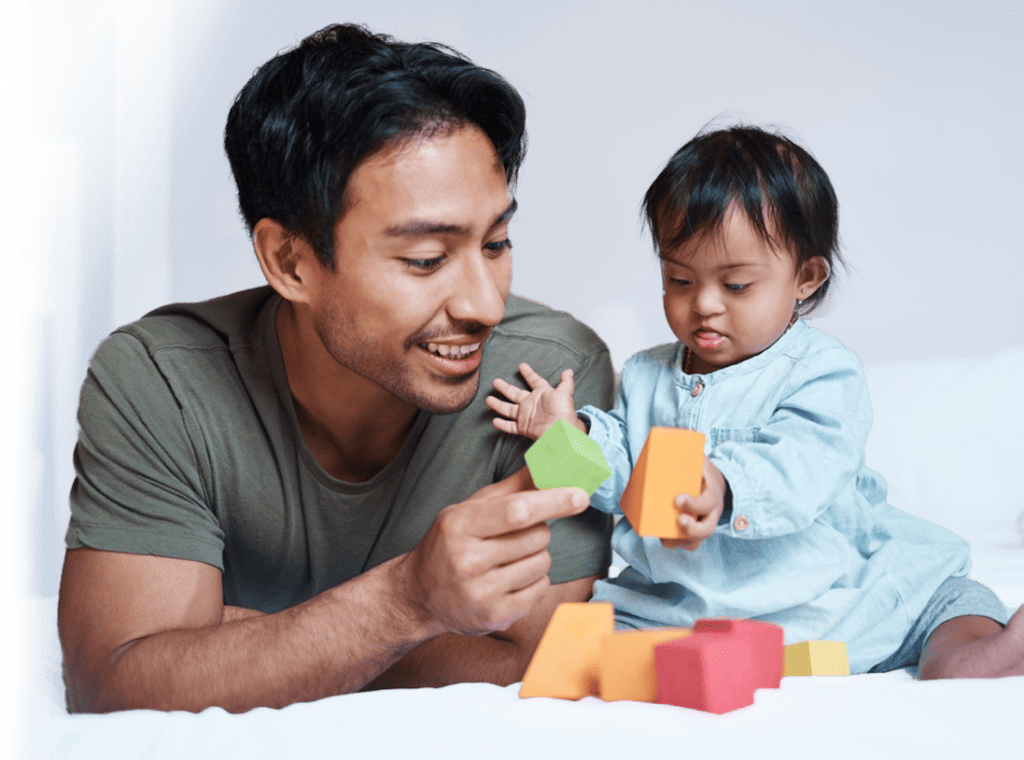(Listen to this on our podcast instead)
It is exhausting supporting our kids who have a hard time regulating their emotions.
We are keen observers of the look in the eye just before a meltdown. We’ve learned to avoid things that set off our kids when we’re trying to get them to school. We have strategies for talking them down off the ledge when they’re losing it at a birthday party. We are experts in co-regulation. But, man. It is so tiring.
Co-regulation: It sounds complicated, doesn’t it? Not what we parents need to just get the kid off the floor, off the screen, or out the door. But that’s the thing. It is often just what we need to get back on the same page with our kids. Co-regulation is when one person’s dysregulated nervous system is met with another person’s calm nervous system and as a result begins to calm, or regulate.

The best part is that you already know how to co-regulate with your child.
Remember when that kid that you’re so frustrated with right now was just a sweet little baby and he would cry. What did you do? You did all of the things that you knew helped calm him down. You probably changed the tone in your voice, you probably slowed down, you focused on him, maybe you picked him up or swayed the sway that takes us years to stop doing when we stand still. Maybe you sang in a low, slow tune. Maybe you made exaggerated smiles with wide eyes. Or maybe you avoided eye contact and held him tight. Whatever it was, you did it because you learned about what he needed to feel calm and you would do anything to get him to feel calm. You co-regulated him so that he would feel regulated again.
Ok, that was an easy one, but what about a tantruming toddler or an obstinate child?
If you’re a parent, you’re familiar with behavioral outbursts. (Sometimes the outbursts are our own). If you have a child with a disability or a challenge relating and communicating, you’ve likely supported your child through a number of emotional or sensory meltdowns or overflows. Whatever you call them in your home, we all can call up a memory.
How we respond to behavior depends on the context. Let’s say a child is really digging her heels in about going to school. She is mad. She’s not getting dressed and she doesn’t care what you threaten to take away if she doesn’t do it now. She also doesn’t seem to care that you are going to be late for your meeting or that her brother is screaming in the car seat ready for daycare.
You’ve had a good sleep and a good breakfast and you’re calm enough to realize she might be feeling nervous about something happening in class that day and was upset when she couldn’t find her favorite sweater. You stop yelling and walk to her room where she’s stomping on the shirt you had out. Then you say, in a calm voice, “You must be nervous about today and you wanted your favorite sweater to help you feel better.” She stops stomping and looks at you, but she’s still angry. “That sweater is dirty but I want to help you feel better so let’s see what else we can find that would be a good one for today.” She comes over and you look together. You co-regulated her so that she could re-engage with you and you could help her re-engage with the world. (Read our tips on self-regulation)
But what about teenagers…. Or partners?
The older we get, the more complex we become. It is normal to feel dysregulated at times. Many of us have had experiences that have helped us to feel in our bodies what it feels like to become calm again. If we’re lucky, we’ve had family and friends that have co-regulated us; with hugs, by listening, by helping us to reflect on the root of how we’re feeling, or with a simple “that must be so hard.”
The more opportunities we have to co-regulate with others, the easier it will be to self-regulate on our own. We draw from those experiences. We tell ourselves to walk away, or breathe deep, or connect with a friend. Remember what you know about your loved one, what they need and what they like, and if you’re able to muster up that emotional energy, step back, slow down, and help them to connect what they’re feeling to how they’re behaving. But always with empathy and respect.
If you’ve made it this far, something has resonated with you and you may be spending a lot of time trying to co-regulate your child or someone else you’re close to. Maybe it’s not working and you’re frustrated. Maybe it’s working and you’re exhausted. Most likely it’s a little bit of both.
You are doing so much. There are so many layers to what you are trying to do in a day and it’s impossible to separate the pandemic pressures from it all. You cannot co-regulate others when you are in a state of dysregulation. And you also cannot be expected to be calm and engaged 24/7.
So here are your takeaways:
Stay connected by staying curious.
Keep looking for clues and make assumptions about what’s bothering them.
Even if you’re wrong, you’re showing that you see them. And isn’t that what feels the best when we feel the worst; to feel seen?




